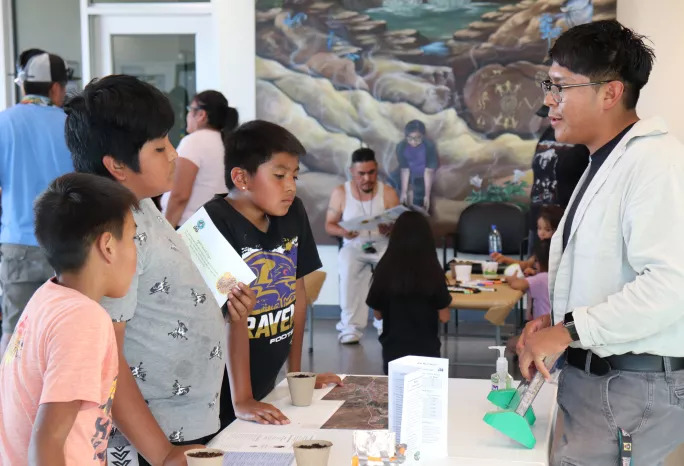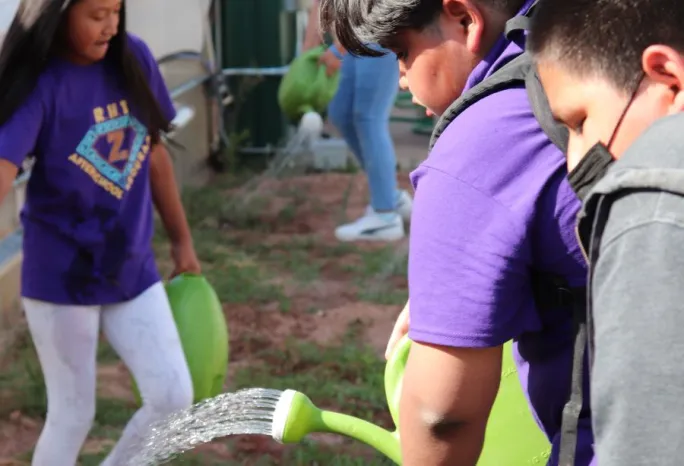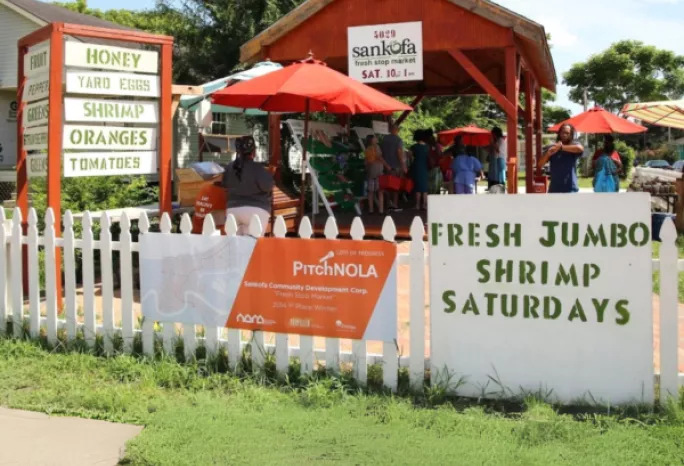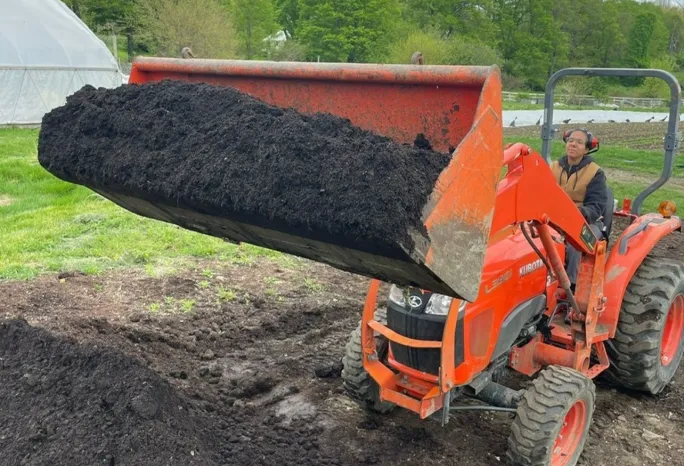
Powerbuilding Program: Grassroots stories and food systems change
The aim of CSPI's Powerbuilding Program is to partner with groups rooted in communities most impacted by food system inequities to create lasting change. From 2023 through 2025, we have convened six BIPOC- and LGBTQIA-led grassroots organizations in a peer learning cohort and provided subgrants to support their projects to co-create programmatic and policy solutions to address issues in the food system. CSPI, through this program, has supported partners to have the capacity to integrate community Powerbuilding and advocacy work on various scales into their direct service and other community engagement efforts.
Throughout this interactive “cookbook” of recipes to build power in the food system, partner stories and media are shared to uplift the efforts and lessons learned from, with, and by the six Powerbuilding organizations, and our role in supporting this work.
Cooking up community power: An introduction to CSPI's Powerbuilding Program
Community-based organizations were at the center of food and nutrition policy efforts facilitated by the Center for Science in the Public Interest’s stewardship of philanthropic dollars received in 2020. This collaborative effort aimed to advance healthier, more equitable, and sustainable food systems. However, CSPI’s early partnership recipe revealed gaps in supporting the foundational and often unseen community and Powerbuilding work necessary to build a larger movement to advance and sustain equitable food policy passage.
Enter CSPI’s inaugural cycle of the Powerbuilding Program. Launched in 2022, Powerbuilding is more than just a program. It offers dedicated funding to build the advocacy capacity of organizations led by and serving people with racialized and/or minoritized identities—through technical assistance and space for peer organizations to connect and learn in community, from community.
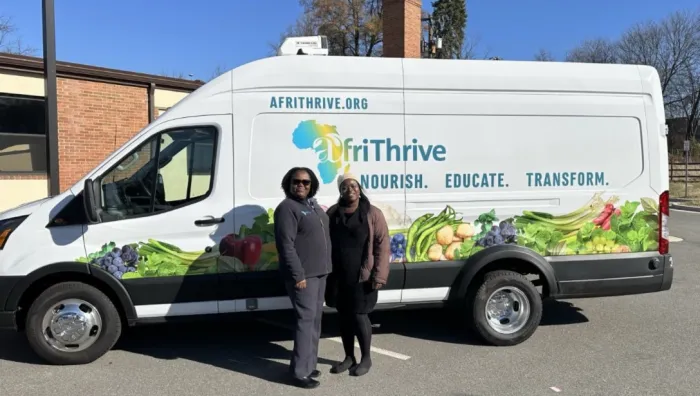
The inaugural Powerbuilding program was a mutual learning experience for CSPI and our partners. In the spirit of peer learning, through this resource, we endeavor to share lessons learned with capacity-building and intermediary policy organizations as well as the philanthropic sector. We seek to elevate the voices, stories, and strategies of the six Powerbuilding partners with the hope of influencing other community-based organizations who desire meaningful change in the food system.
Meet CSPI's inaugural Powerbuilding partners
The six Powerbuilding partners that made up the inaugural cohort are uniquely positioned in that they each have engaged in efforts related to policy advocacy and systems change at different scales—locally, across their state, or nationally—while focusing on different aspects of the food system—agriculture, food security, food retail, culturally relevant food, and food and land sovereignty.
CSPI is proud to highlight the six Powerbuilding partners for 2023-2025:
- AfriThrive;Maryland and DC.AfriThrive mobilizes, connects, and empowers vibrant and thriving African immigrant and minority families through access to nutritious, culturally appropriate food, skills development, and economic opportunity.
- Co-Op Dayton; East Dayton, Ohio.Co-op Dayton develops cooperative businesses that meet community needs, from access to fresh groceries to quality job opportunities, to transform Dayton’s Black and working-class neighborhoods by rooting jobs and businesses locally.
- La Semilla Food Center; Paso del Norte region, New Mexico, and El Paso, Texas.La Semilla Food Center creates and supports a more equitable and sustainable food system in the Paso del Norte region, building relationships and empowering spaces for youth and families and fostering connections among food, health, and local economies.
- Rock Steady Farm; Hudson Valley, New York. Rock Steady Farm is a multiracial, queer- and trans-led cooperative vegetable farm and nonprofit rooted in social justice, food access, and farmer training to address barriers for beginning queer, trans, and BIPOC farmers, while creating new pathways to thrive.
- Sankofa Community Development Corporation; Lower Ninth Ward, New Orleans, Louisiana. Sankofa Community Development Corporation is dedicated to creating simple solutions to real-world problems by building infrastructure that brings clean food, water, and energy to support a resilient community in New Orleans’ Ninth Ward.
- Zuni Youth Enrichment Project; Zuni Pueblo. Zuni Youth Enrichment Project ensures that Zuni youth will be healthy and prepared to continue the important traditions of the Zuni culture with youth programs in a community-wide effort to provide healthy spaces for healthy activities.
Testing a new recipe: Why Powerbuilding?
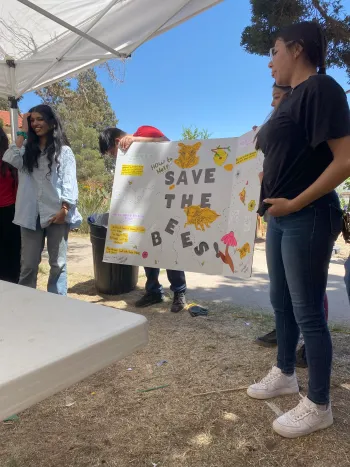
The Powerbuilding Program emerged after internal and external thought partnership exploring approaches to better center equity in CSPI’s role as a regrantor. Like many organizations, in 2020, CSPI began more deeply grappling with organizational positionality, power, and privilege, and began critical internal reflection and deep thought on the role of systemic inequities and the ways these impact food and health. This deepened our commitment to examining and approaching our policy portfolio and regranting efforts through a health equity lens, aiming to more authentically engage communities and center the voices and leadership of people with racialized and/or minoritized identities.
External contributors to the development of the Powerbuilding Program include Just Strategies, the Praxis Project, and CSPI's Health Equity Advisory Committee (HEAC), which convened from 2020 to 2022. A few of the recommendations that specifically influenced the design and scope of the Powerbuilding Program included:
- Creating more flexibility and a less narrow and rigid set of options for fundable policy campaigns; particularly if community groups have articulated strong concerns about particular policy approaches based upon equity.
- Funding and supporting processes that didn’t demand communities' consent to a preset agenda; encouraging community co-design of policy approaches.
- Investing in applicants’ skills and capacity development.
- Developing a standalone capacity-building grant opportunity to support capacity building, innovation, and community engagement strategies.
Internally, crosscutting staff at CSPI collaborated to identify opportunities to diversify our partnerships. This program actively sought to engage with organizations that had emerging or beginning experience with policy passage and advocacy, which resulted in an increase of number of applications by 141 percent over the first cycle of regranting. This strategy also improved the number of organizations led by people with Black, Indigenous, and/or Latine identities from 11 percent to 41 percent across the regranting portfolio, with the Powerbuilding Program leading in this area.
The mission and purpose of organizing is to build power. Without power, we are unable to change conditions in our communities that hurt us. A movement is successful if it transforms the dynamics and relationships of power.
- Alicia Garza, Co-Founder, Black Lives Matter
Special Ingredient Spotlight #1: The Why
We ground our partnership and collaborative work in "The Why.” For this crucial ingredient in the broader context of community-centric policy and programming, we heard from our partners that power building is essential because it:
• Gives voice to community members who have historically not been provided a seat at the table.
• Supports development of culturally appropriate resources, population-specific movement around systems change, and cultural competence and empathy across the community.
• Spurs action from the existing strengths of the local culture, and across generations.
• Builds resilience through community connection, which ultimately supports sovereignty, where there can be long-term impact and sustainability.
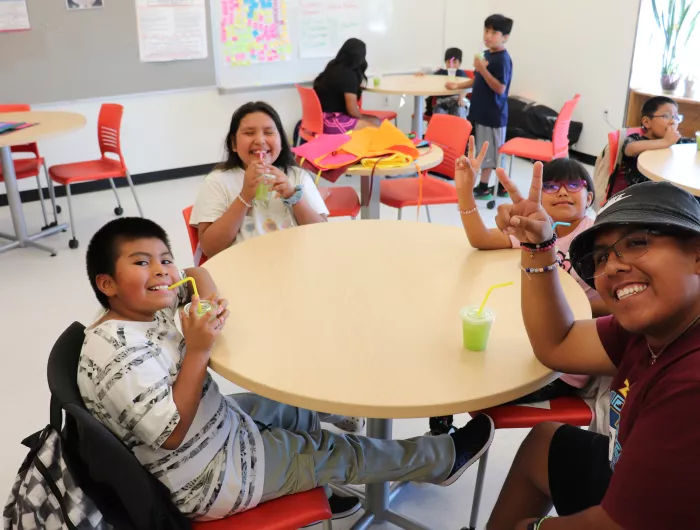
Why Powerbuilding, and why now?
“At the end of the day, what brings us back to that important piece of powerbuilding is our community. Sovereignty, and accessing, and really enforcing and emphasizing and enriching the capacity to build upon that. [...] Our community is our strength, our culture is our strength, our language is our strength. We're just bringing it into things that we can control. And so that's where we're shifting that power right now.” - Brittny Seowtewa, Food Sovereignty Coordinator, ZYEP
Hashing out our process: Methods
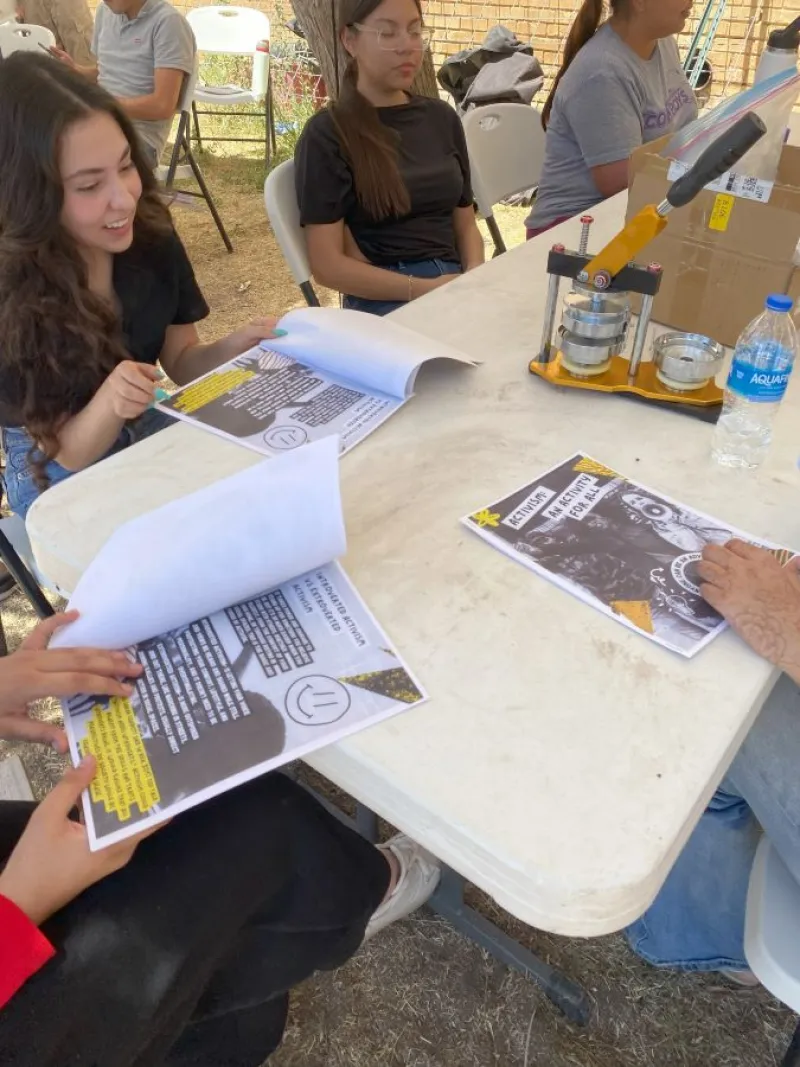
Guided by racial equity and justice, the aim of the Powerbuilding Program is to partner with groups rooted in communities most impacted by food system inequities to create lasting change. Through an open application process that yielded almost 80 applications, CSPI selected six nonprofit organizations from around the country to participate in the first cohort and funding cycle of the Powerbuilding Program. Partner-led projects as a part of the program included three core activities: convening community members, building skills and power, and co-creating programmatic and policy solutions to pressing issues in the food system. Check out the map below to meet the Powerbuilding partners.
Each Powerbuilding partner organization works in distinct parts of the food system—agriculture, food security, food retail, culturally relevant food, and food and land sovereignty. There was also an assortment of distinct communities and locations covered in the cohort – organizations were rooted in their communities across the Northeast, Midwest, Southeast, and Southwest. Unique communities and subregions represented included New York’s Hudson Valley; the eastside of Dayton, Ohio; the greater DC-Baltimore area; New Orleans’ Lower Ninth Ward; Zuni Pueblo; and the Paso del Norte region of southern New Mexico and El Paso, Texas. The geographic and issue area diversity of the partners contributed to a rich cohort of peers examining and addressing root cause issues in their community, while centering their constituents in co-creating and advocating for solutions. Our partnership largely centered on funding support for a Powerbuilding project, and a concurrent cohort-based skill-building focused on policy advocacy and storytelling. Additional supports offered to the Powerbuilding partners are listed below.
Powerbuilding partner supports
Over the two-year partnership, CSPI’s Powerbuilding Program sought to provide comprehensive support to our participating partner organizations and leaders.
CSPI’s Powerbuilding Partners meet regularly with CSPI associates, and as a cohort, to practice a model of partnership and co-learning centered on building relationships, sharing strategies and resources, and receiving ongoing support around narrative change projects to disrupt and reframe issues to advance an equitable food system.
Recognizing the unique privilege of stewarding a novel subgranting program, we sought to approach all opportunities to redistribute funding—including through the first cycle of Powerbuilding—with humility, learning from subgrantee partners’ feedback, and operationalizing guidance from leaders in the field, such as embedding the Guiding Principles for Grantmaking into our processes. These principles include:
- seeking feedback from applicants and subgrantees through qualitative surveys, tying to a core principle of accountability;
- sharing resources and technical assistance with subgrantees via an online Resource Hub, tying to collaboration; and
- committing to racial and health equity by prioritizing BIPOC-led organizations, and utilizing health equity impact metrics to inform decision-making.
The findings included in this interactive report were gathered through feedback during group cohort sessions and individually, interviews with individuals, and testimonies from community members and program participants of the Powerbuilding partner organizations. We have carefully gleaned and offer insights from the shared experiences of our partners, and from the experiences we have been privileged to have as facilitators and capacity builders.
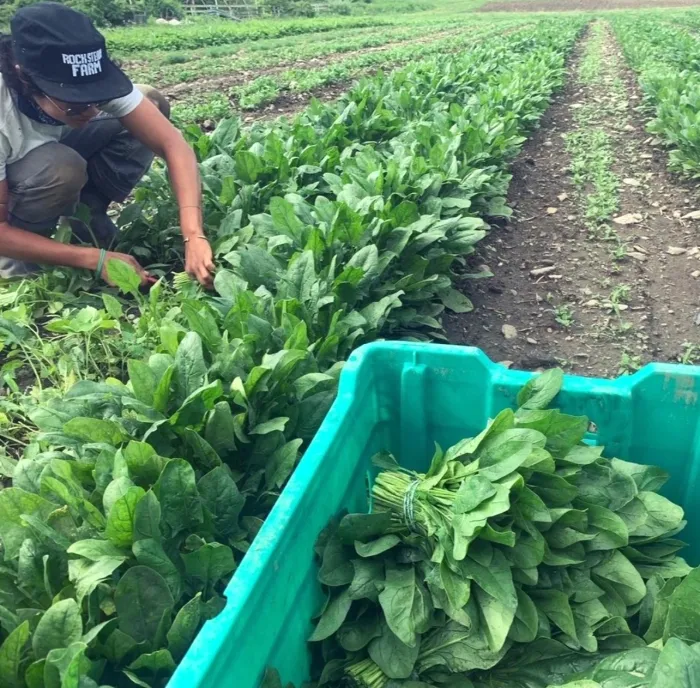
Special Ingredient Spotlight #2: The How
When it comes to understanding the “how” of guiding effective Powerbuilding efforts, our partners shared these thoughts:
• Pass the mic and share the decision-making power, intergenerationally.
• Invest in building trust and relationships within those communities most impacted by historic and systemic inequities.
• Take action based on the expressed needs of the community.
• Work and plan sustainably to ensure effective efforts in the long term.
• Be ready to adapt to the only true constant – change.
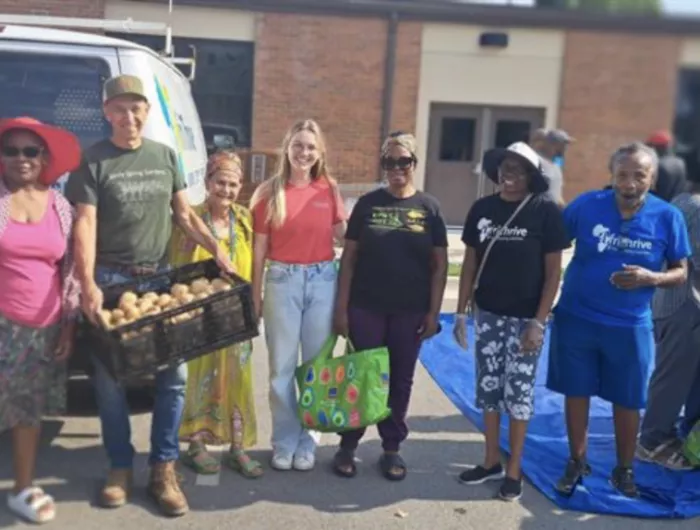
What is Powerbuilding?
"When we put the people together and we are working together, we are building a collective voice of the African diaspora and saying, ‘Hey, here we are. We need systems - food systems that serve our needs, food systems that are diverse, food systems that are uplift our dignity, that uplift our identity.' And we are able to shift policies, whether it's zoning policies, whether it's land access, that will nurture that diversity, so that our generations and the generation to come find that the space is inclusive for them. So when we started off using food as a tool for empowerment, because that's the catch point, we are touching their hearts, we are touching their bodies so people are speaking out." - Dr. Truphena Choti, Founder and CEO of AfriThrive
Ingredients of Powerbuilding: Exploring emergent themes
Each Powerbuilding Partner translates shared values into action in unique ways across their organization’s various programs —rooted in culture, place, and community needs. This section highlights how partners brought four key themes to life: Storytelling to shift narratives, intergenerational knowledge-sharing, place-based strategies for food and economic justice, and cooperative approaches to strengthen local food systems. Through these programs, we see how powerbuilding is not just a concept—it’s a practice that evolves through relationships, reflection, and community-led design.
Let them cook: Ways to support efforts in community Powerbuilding
As a capacity building and intermediary policy organization, CSPI through the Powerbuilding program has supported partners to have the capacity to integrate community Powerbuilding and advocacy work on various scales into their direct service and other community engagement efforts. Partners shared that advocacy and Powerbuilding practices and skills learned through the cohort have been able to be shared with constituents as well as members of their broader communities as they educate their neighbors about issues in their neighborhood and involve them in opportunities to make change. Anyone can bolster the efforts of community power building to advance public health and food systems change.
Acknowledgments
In addition to our innovative Powerbuilding partners, this resource was a crosscutting effort across various CSPI teams, with leadership from CSPI’s Engagement and Capacity Building Team. Thank you to Ashley Hickson, Adrienne Crezo, Zachary Goldstein, Jorge Bach, Marian Manapsal, and Anupama Joshi. The Powerbuilding Program is led by the Engagement and Capacity Building Team, and specifically co-managed by Engagement Associates Isaiah Blake and Bethany Williams. If you are interested in learning more about Powerbuilding at CSPI, please contact one of the team members below.


